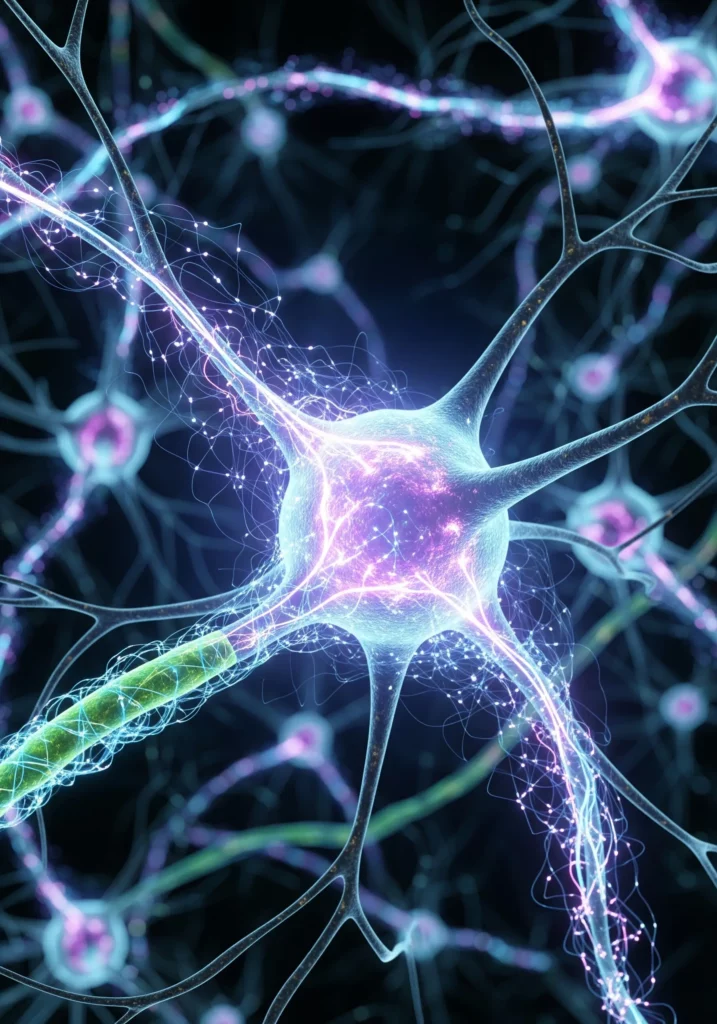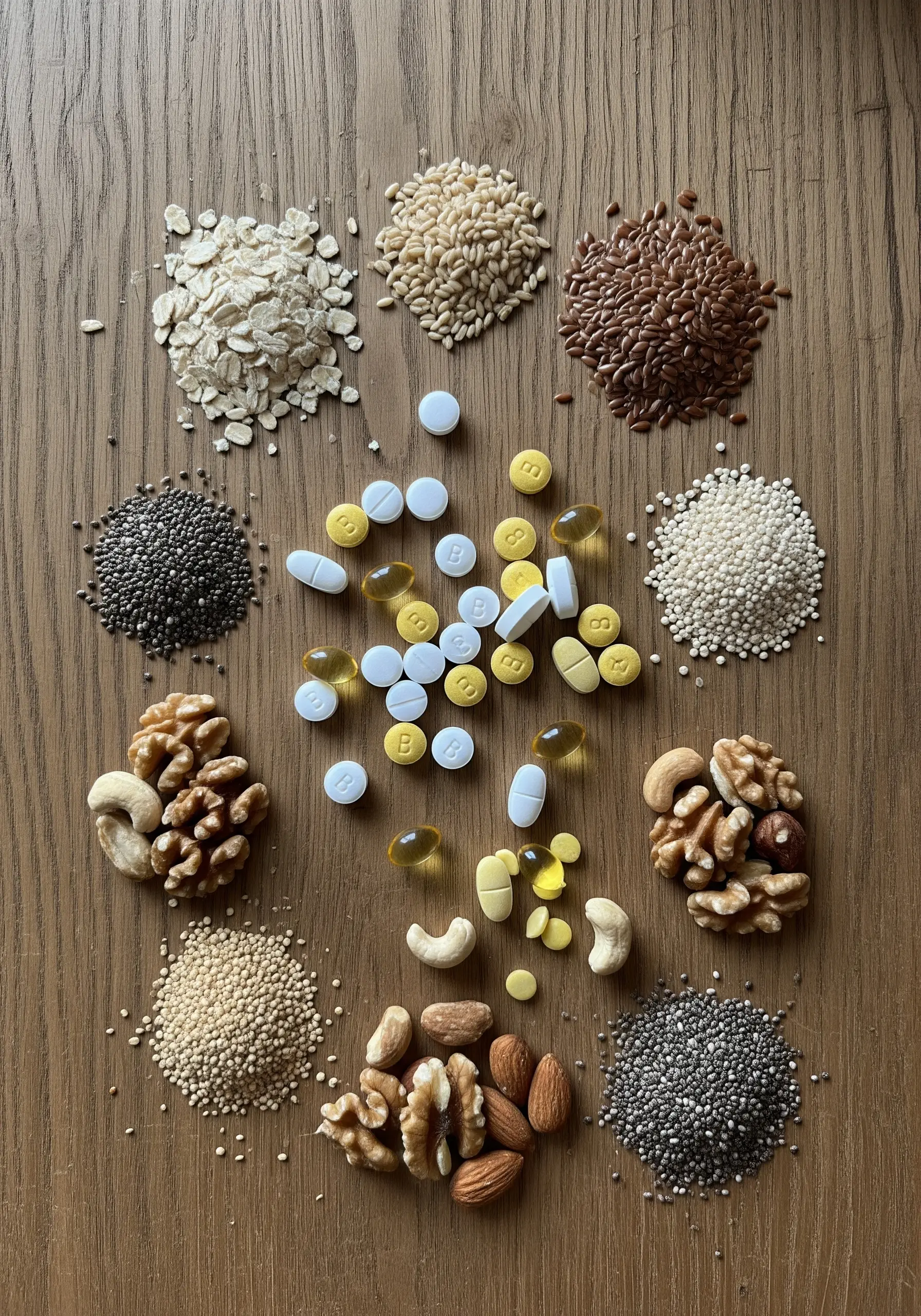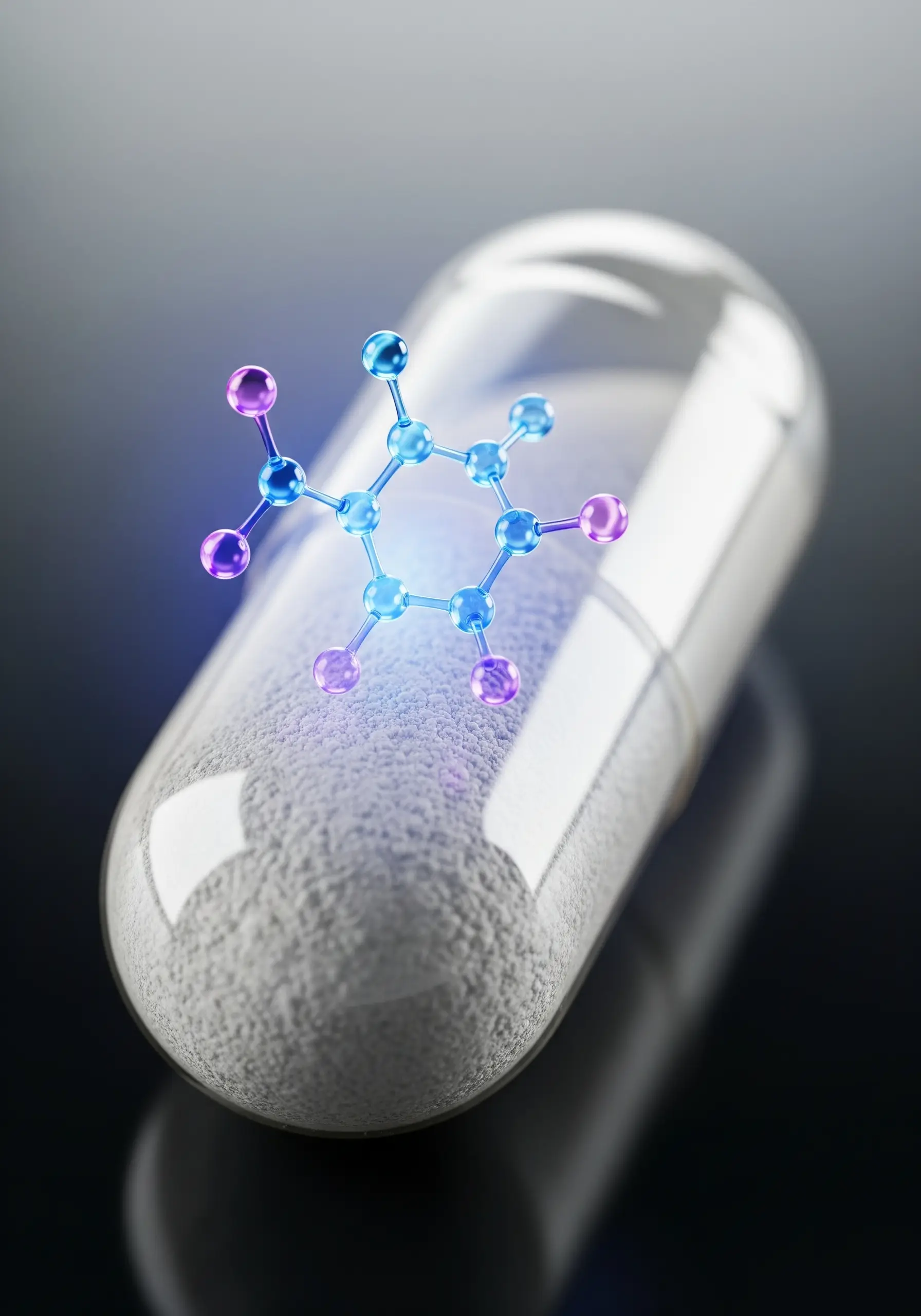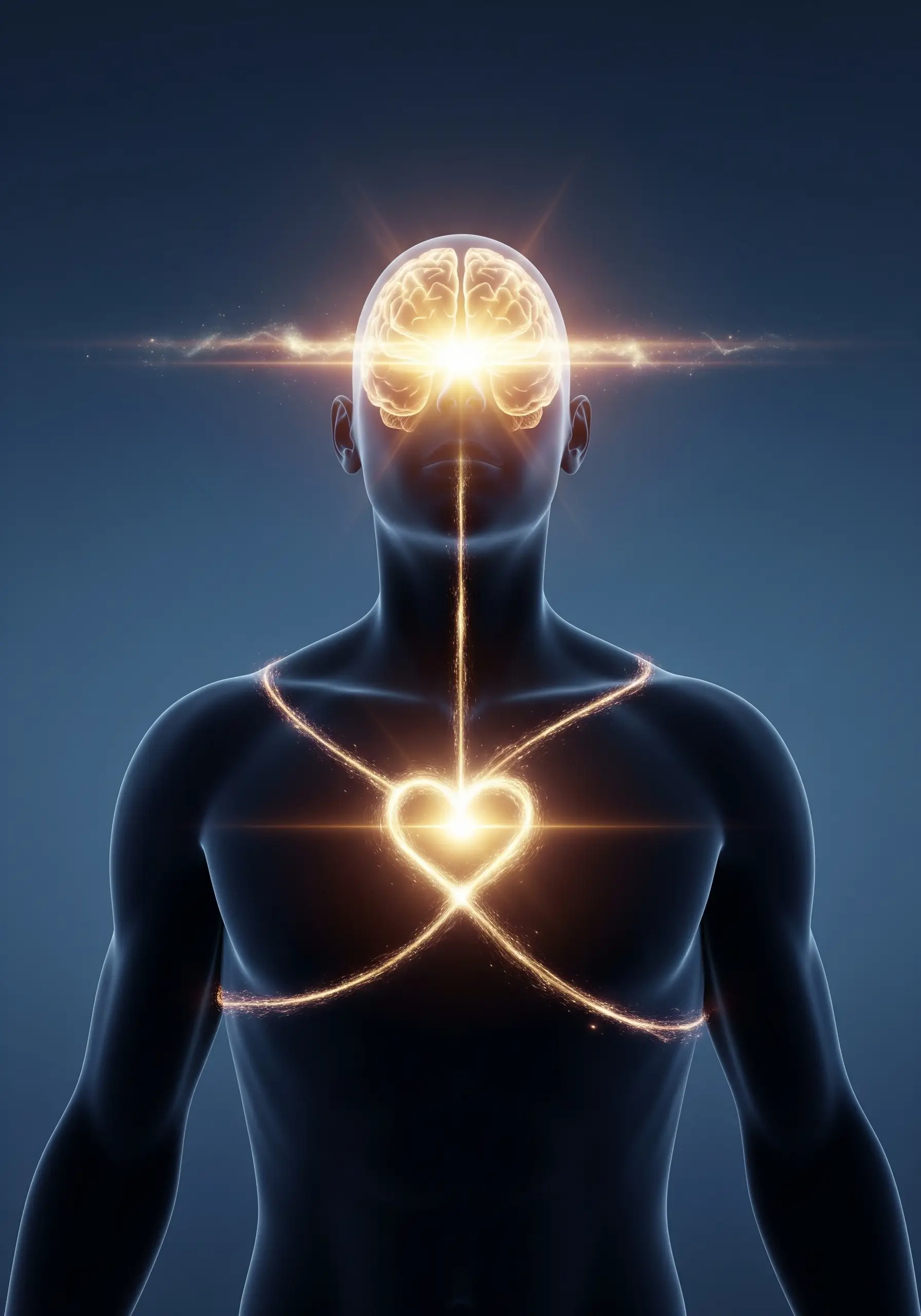

Why this “unnoticeable” Vitamin B1 determines how we cope with stress, cold, and fatigue.
Introduction
November is the month when days are shorter, the body needs more calories, and the brain — more energy.
During this period, complaints about fatigue, apathy, forgetfulness, and cold hands and feet increase.
One of the main reasons for this is a vitamin B1 (thiamine) deficiency, a key participant in the energy metabolism of nerve cells.
Thiamine is not just a “vitamin against avitaminosis.” It’s a coenzyme without which ATP production in mitochondria cannot occur. When it’s lacking, the brain “runs on an empty tank.”

How thiamine gives energy
After absorption in the small intestine, thiamine is converted into thiamine pyrophosphate (TPP) — the active form that participates in three key reactions:
-
Glucose decarboxylation (Krebs cycle) → energy production;
-
Amino acid metabolism → synthesis of neurotransmitters (GABA, acetylcholine);
-
Nerve impulse conduction → proper function of muscles and brain.
Without thiamine, the brain cannot utilize glucose and suffers first — fatigue, irritability, and “brain fog” appear.

Table 1. Where thiamine works in the body
| System | Biochemical role | Effect of deficiency |
|---|---|---|
| Nervous system | Impulse transmission, neurotransmitter synthesis | Apathy, anxiety, paresthesia |
| Cardiovascular | Heart muscle function, glucose metabolism | Tachycardia, weakness, cold extremities |
| Brain | Glucose utilization | Poor focus, low mood |
| Digestion | Gastric secretion, motility | Heaviness, loss of appetite |

Why B1 deficiency is especially common in autumn
-
Coffee, alcohol, and sugar reduce thiamine absorption.
-
Cold and stress increase its consumption — thiamine is required for cortisol synthesis.
-
Long-term diuretic use or low-carb diets deplete B1 levels.
A Nutrients, 2024 study showed that over 30% of office workers have reduced thiamine levels in red blood cells during winter, directly correlating with chronic fatigue and insomnia.

How Vitamin B1 helps fight winter apathy
-
Improves mitochondrial function — more energy for brain and muscles.
-
Supports nervous stability — helps during stressful periods.
-
Reduces feeling of cold — stimulates peripheral circulation.
-
Improves metabolism — especially in combination with magnesium, B6, and coenzyme Q10.
Table 2. Optimal thiamine combinations
| Goal | Combination | Expected effect |
|---|---|---|
| Energy support | B1 + B2 + B3 + Q10 | ATP production, fatigue reduction |
| Stress and anxiety | B1 + Mg + B6 | Nervous system stabilization |
| Heart and vessels | B1 + L-carnitine + B12 | Improved circulation |
| Memory and concentration | B1 + choline + D3 | Acetylcholine synthesis |
The preventive dose of thiamine for adults is 1.1–1.3 mg per day, but during stress or high workloads, effective doses are 10–50 mg/day.
Forms — thiamine hydrochloride or benfotiamine (fat-soluble form with higher bioavailability).
Vitamin B1 FAQ
1. How to know if you lack vitamin B1?
Symptoms: constant fatigue, irritability, tingling in hands and feet, cold extremities, and “brain fog.”
2. Can you get thiamine from food?
Yes, but it is destroyed by heat. The best sources are whole grains, seeds, pork, legumes.
3. Does B1 help with depression?
Yes, since it participates in serotonin and acetylcholine synthesis. Helps gently reduce apathy and anxiety.
4. Is benfotiamine safe?
Yes, it is non-toxic even at high doses (up to 300 mg/day).
5. Can you take B1 with coffee?
No, caffeine destroys thiamine. A 2-hour break between vitamin intake and coffee is recommended.
Conclusions
Thiamine is the key to winter endurance.
It converts glucose into energy, nourishes the brain, regulates mood, and supports the heart.
Its deficiency is one of the most common hidden causes of autumn-winter apathy.
Therefore, supplementing with thiamine (especially combined with magnesium and B6) is a simple and effective way to restore clarity of thought, calmness, and inner warmth.
References
-
Zhao, Y. et al. Nutrients, 2024 — “Thiamine and fatigue: biochemical mechanisms and clinical implications.”
-
Smith, T. et al. Frontiers in Psychiatry, 2023 — “Thiamine deficiency and mood disorders.”
-
EFSA Report, 2024 — “Dietary reference values for thiamine.”
-
Zhang, L. Journal of Neurochemistry, 2025 — “Thiamine and mitochondrial function in neuronal cells.”
-
Ochoa, A. Clinical Nutrition, 2024 — “Benfotiamine in neurovascular health.”



